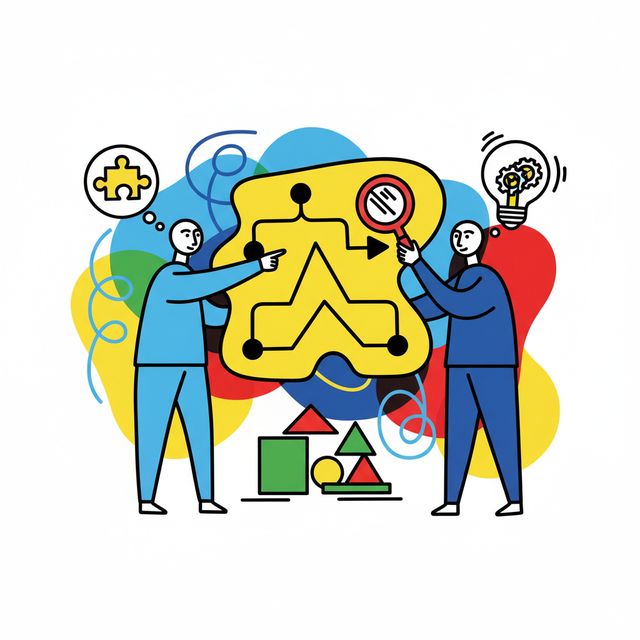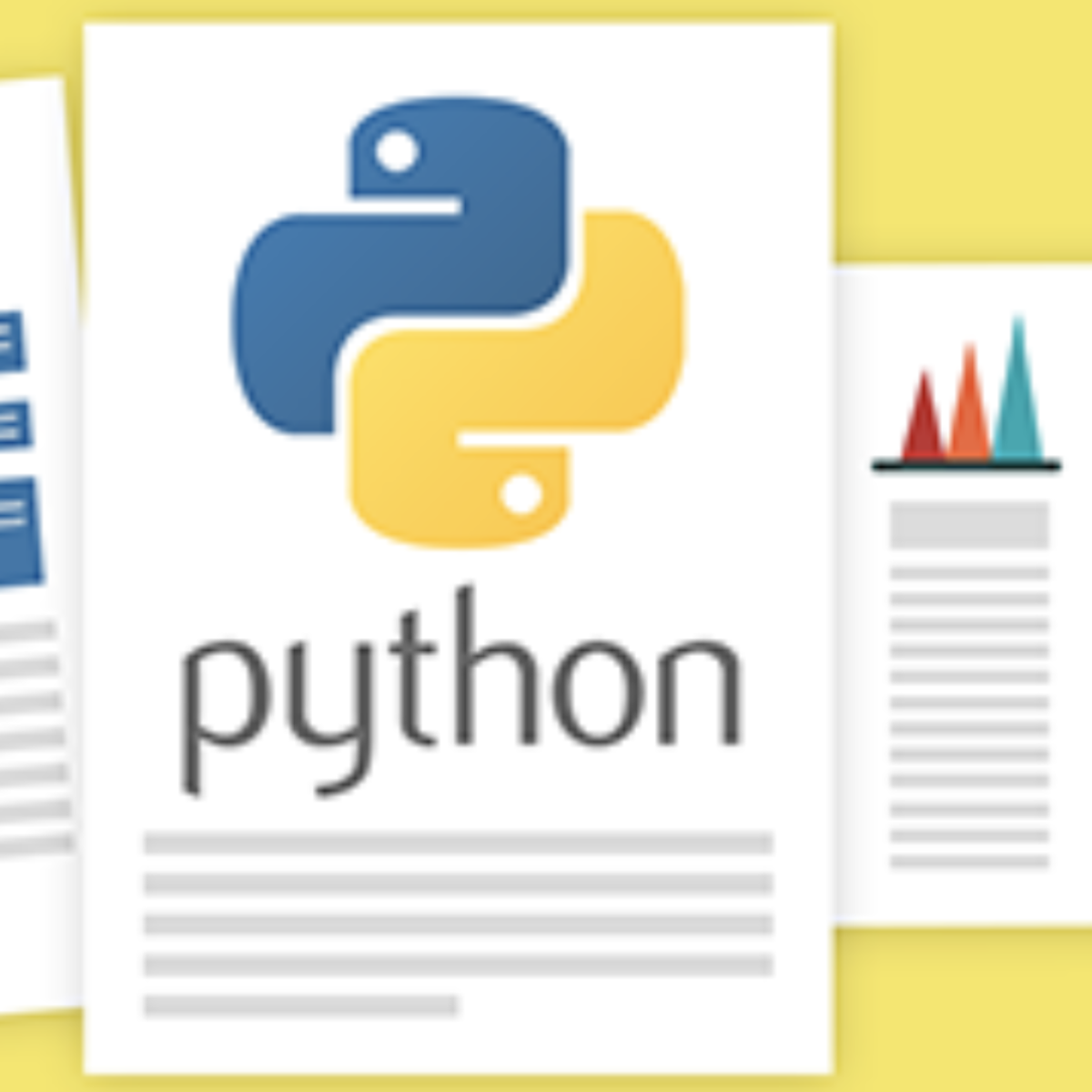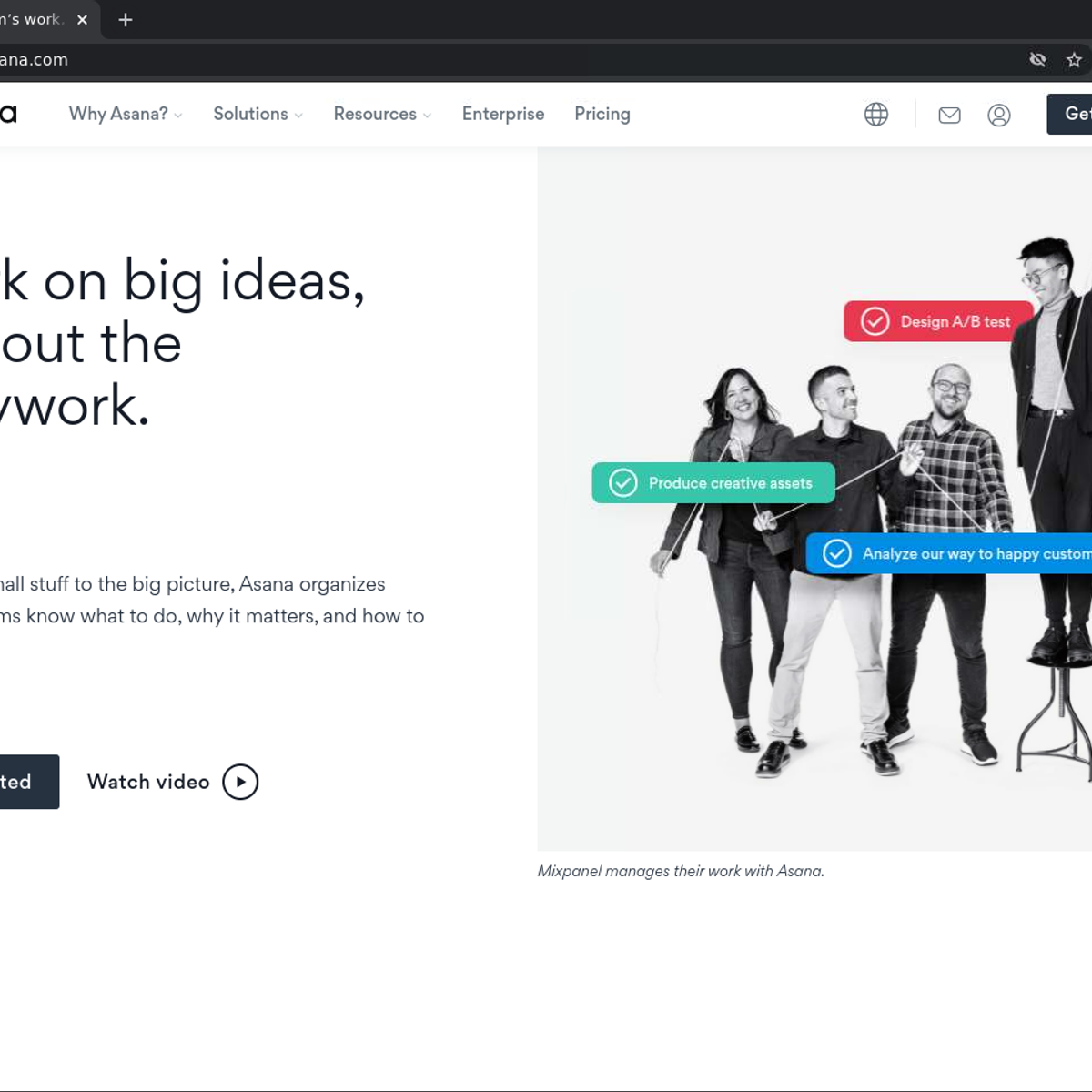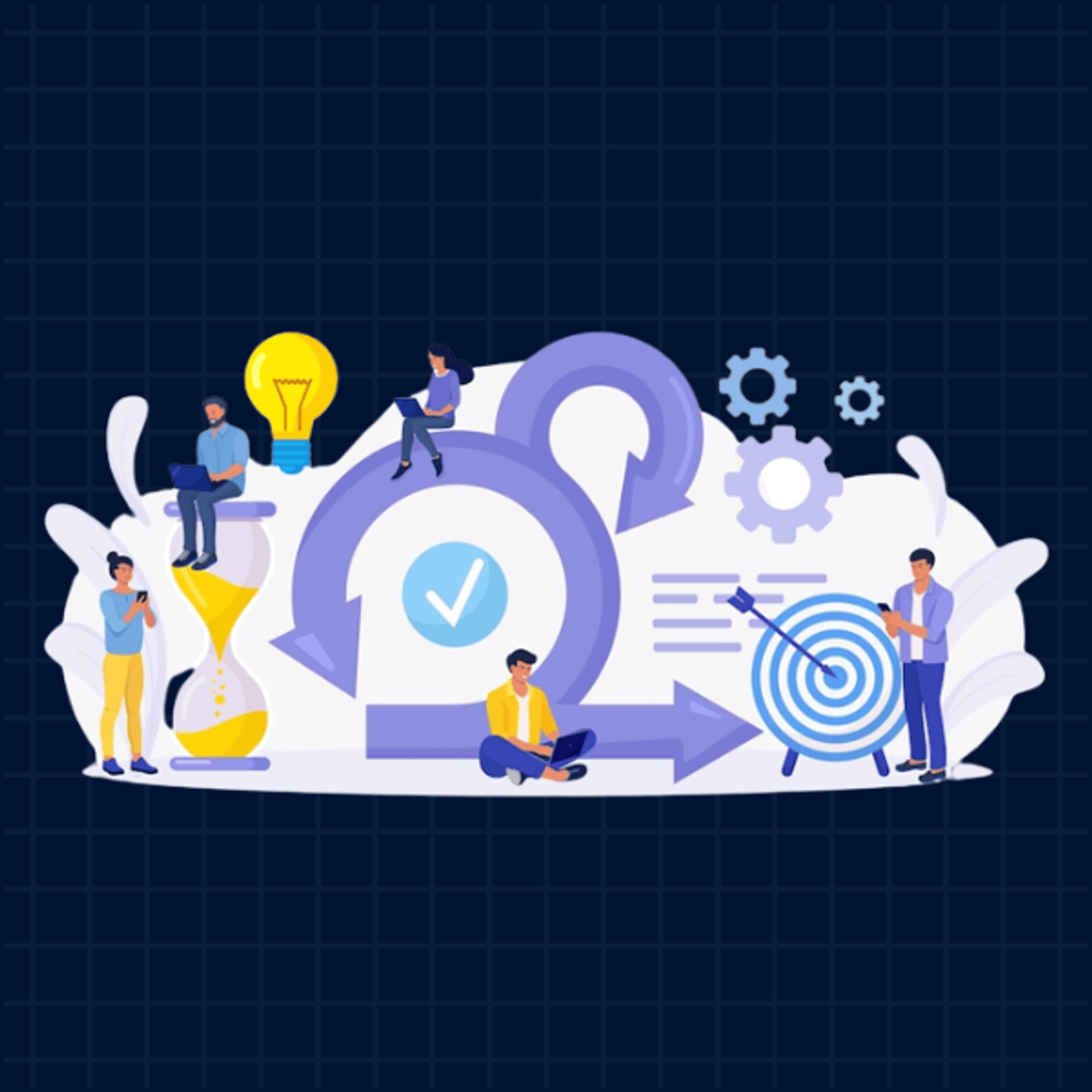Business Analyst
Comprehensive Guide to the Business Analyst Career
A business analyst acts as a vital bridge between an organization's operational or strategic needs and the technological solutions that can meet those needs. At a high level, they are problem-solvers and change agents, using data to identify areas for improvement, enhance efficiency, and help businesses achieve their objectives. This involves a blend of analytical rigor, business acumen, and strong communication to translate complex data into actionable insights and facilitate informed decision-making across all levels of an organization.
Working as a business analyst can be engaging and exciting. One key aspect is the opportunity to delve into diverse business problems, acting almost like a detective to uncover inefficiencies and opportunities. Another appealing facet is the collaborative nature of the role; business analysts often work closely with a wide range of people, from technical teams to senior executives, fostering a dynamic and interactive work environment. Finally, the impact of a business analyst's work can be highly rewarding, as their recommendations can lead to tangible improvements in how a company operates and serves its customers. For individuals who enjoy unraveling complexities, collaborating with diverse teams, and driving meaningful change, a career in business analysis offers a stimulating and fulfilling path.
Introduction to Business Analysis
Business analysis is a multifaceted discipline focused on identifying business needs, defining solutions to business problems, and enabling change within an organizational context. It's a role that has become increasingly crucial as companies navigate complex market dynamics and strive for greater efficiency and effectiveness.
Definition and Core Objectives of Business Analysis
At its core, business analysis involves investigating business situations, identifying and evaluating options for improving business systems, and ensuring that the chosen solutions align with the organization's strategic goals. The primary objective is to maximize the value delivered by an organization to its stakeholders. This is achieved by understanding how a business functions, identifying areas for improvement, and facilitating the implementation of changes that enhance performance and efficiency.
Business analysts work to elicit, analyze, validate, and document business, organizational, and/or operational requirements. They serve as a liaison between business stakeholders and technical teams, translating business needs into functional specifications that guide the development of new systems or processes. Essentially, they ensure that everyone is on the same page and working towards a common, well-defined goal.
The insights generated by business analysts help organizations make data-driven decisions, reduce costs, improve processes, and ultimately achieve better business outcomes. They are instrumental in navigating the complexities of modern business and ensuring that technology and process changes genuinely meet the underlying needs of the enterprise.
Historical Evolution of the Profession
The roots of business analysis can be traced back to the early days of systems analysis and operations research, which gained prominence in the mid-20th century. As businesses began to adopt computer systems for various functions, the need arose for individuals who could understand both the business processes and the technical capabilities of these new technologies. Initially, this role was often embedded within IT departments.
Over time, as business processes became more complex and technology more integral to operations, the role of the business analyst began to formalize and expand. The focus shifted from purely technical systems to a broader understanding of business needs, strategy, and process improvement. The establishment of professional organizations like the International Institute of Business Analysis (IIBA®) in 2003 played a significant role in standardizing the profession and defining its body of knowledge (BABOK® Guide).
Today, business analysis is recognized as a distinct and critical profession. The modern business analyst is not just a requirements gatherer but a strategic partner who helps organizations navigate change, leverage data for insights, and drive innovation. The evolution continues, with an increasing emphasis on skills related to data analytics, agile methodologies, and digital transformation.
Key Industries Employing Business Analysts
The skills of a business analyst are highly transferable, making them valuable across a wide array of industries. Essentially, any organization looking to improve its processes, make better use of data, or implement new technologies can benefit from the expertise of a business analyst.
Some of the key industries that consistently employ business analysts include:
- Information Technology: This is a traditional stronghold for business analysts, where they play a crucial role in software development, systems implementation, and IT project management.
- Finance and Banking: In this sector, BAs help with regulatory compliance, risk management, process optimization for financial transactions, and the development of new financial products and services.
- Healthcare: Business analysts in healthcare work on improving patient care processes, managing healthcare data, implementing new healthcare IT systems, and ensuring regulatory compliance.
- Consulting: Management and IT consulting firms heavily rely on business analysts to help their clients solve complex business problems and implement strategic changes.
- Retail and E-commerce: BAs in this fast-paced sector focus on customer experience, supply chain optimization, data analytics for sales and marketing, and the implementation of e-commerce platforms.
- Government: Public sector organizations employ business analysts to improve service delivery, manage large-scale IT projects, and enhance operational efficiency.
- Manufacturing: In manufacturing, BAs may be involved in process improvement, supply chain management, quality control, and the implementation of enterprise resource planning (ERP) systems.
This list is not exhaustive, as the demand for business analysts continues to grow in virtually every sector focused on leveraging data and technology for strategic advantage.
Core Competencies and Skills
Succeeding as a business analyst requires a blend of technical proficiency, business understanding, and strong interpersonal abilities. These competencies allow analysts to effectively dissect problems, devise solutions, and navigate the complexities of organizational change.
Technical Skills
While business analysis is not solely a technical role, a certain level of technical aptitude is essential. Modern business analysts often work closely with data and technology, requiring familiarity with various tools and techniques.
One of the fundamental technical skills is proficiency in data analysis tools. This often includes advanced capabilities in Microsoft Excel for data manipulation, modeling, and visualization. Many business analyst roles also require knowledge of SQL (Structured Query Language) to extract and analyze data from databases. Understanding database structures and being able to write effective queries is a significant asset.
Beyond Excel and SQL, familiarity with specialized business intelligence and data visualization platforms such as Tableau or Microsoft Power BI is increasingly valuable. These tools enable analysts to create compelling visual reports and dashboards that communicate complex data insights effectively. Depending on the specific industry or role, knowledge of other software like Customer Relationship Management (CRM) systems (e.g., Salesforce) or Enterprise Resource Planning (ERP) systems can also be beneficial.
These courses can help build a strong foundation in essential technical skills for business analysis.
For those looking to deepen their understanding of data handling and programming, these books offer valuable insights.
Business Acumen
Business acumen refers to a keen understanding of how a business operates and makes money. For a business analyst, this means grasping the organization's strategy, goals, processes, and the industry it operates in. It involves understanding financial statements, market dynamics, and the impact of decisions on the bottom line.
A critical aspect of business acumen is stakeholder management. Business analysts interact with a diverse range of stakeholders, including executives, managers, subject matter experts, IT professionals, and end-users. Effectively managing these relationships involves understanding their needs, perspectives, and concerns, and being able to influence and negotiate to achieve project objectives. Strong stakeholder management ensures buy-in for proposed changes and smooth project execution.
Furthermore, business analysts need to understand the "why" behind the data. It's not enough to just report numbers; they must interpret what those numbers mean in a business context and how they relate to the organization's overall objectives. This ability to connect data insights to business strategy is what elevates a good analyst to a great one.
Developing strong business acumen is an ongoing process. These courses offer foundational knowledge in understanding business operations and stakeholder dynamics.
These books provide deeper insights into business strategy and operational understanding.
Soft Skills
While technical skills and business acumen are crucial, soft skills are equally important for a business analyst's success. These interpersonal and cognitive abilities enable analysts to work effectively with people and navigate complex situations.
Communication is paramount. Business analysts must be able to articulate complex ideas clearly and concisely, both verbally and in writing. This includes presenting findings to executives, facilitating workshops, writing detailed requirement documents, and actively listening to understand stakeholder needs. Effective communication helps to avoid misunderstandings and ensures that all parties are aligned.
Problem-solving is another core soft skill. Business analysts are often tasked with dissecting ambiguous problems, identifying root causes, and developing innovative solutions. This requires analytical thinking, creativity, and the ability to evaluate different options to determine the best course of action. They need to be able to think critically about the information they gather and not take things at face value.
Other vital soft skills include negotiation, facilitation, attention to detail, and teamwork. The ability to build rapport, manage conflict, and work collaboratively with diverse teams are all hallmarks of a successful business analyst.
These courses focus on developing the essential soft skills needed for effective business analysis.
For further reading on enhancing communication and problem-solving abilities, these books are excellent resources.
Educational Pathways
Embarking on a career as a business analyst typically involves a combination of formal education, skill development, and potentially, professional certifications. There are multiple routes to enter this field, catering to individuals with diverse backgrounds and experiences. Understanding these pathways can help aspiring business analysts plan their journey effectively.
Many find that online courses offer a flexible and accessible way to gain foundational knowledge and specific skills. OpenCourser allows learners to easily browse through thousands of courses in business, save interesting options to a list, compare syllabi, and read summarized reviews to find the perfect online course to supplement their educational journey or professional development.
Relevant Undergraduate Degrees
A bachelor's degree is often considered the minimum educational requirement for entry-level business analyst positions. While there isn't always a specific "business analyst" major, several fields of study provide a strong foundation. Common undergraduate degrees that employers look for include Business Administration, Information Technology (IT) or Computer Science, Finance, Economics, and Data Science or Statistics.
A degree in Business Administration equips individuals with a broad understanding of business operations, management principles, and financial concepts. Majors in IT or Computer Science provide a solid technical background, which is beneficial for understanding systems and working with technical teams. Finance and Economics degrees offer strong analytical and quantitative skills, valuable for financial modeling and data interpretation. Increasingly, degrees in Data Science or Statistics are also highly relevant, given the growing importance of data analytics in the BA role.
Regardless of the specific major, coursework that emphasizes analytical thinking, problem-solving, communication, and project management will be advantageous. Many universities also offer specialized tracks or minors in business analytics or information systems that can further tailor one's education for this career path.
These courses can provide a taste of what studying these relevant fields might entail.
Certifications
Professional certifications can significantly enhance a business analyst's credibility and marketability. They demonstrate a commitment to the profession and a validated level of knowledge and expertise. Several internationally recognized certifications are available for business analysts at different stages of their careers.
The International Institute of Business Analysis (IIBA®) offers a suite of certifications that are widely respected. These include:
- Entry Certificate in Business Analysis™ (ECBA™): Aimed at individuals entering the field, requiring no prior BA work experience but focusing on foundational knowledge of the BABOK® Guide.
- Certification of Capability in Business Analysis™ (CCBA®): Designed for BAs with 2-3 years of work experience, demonstrating practical knowledge and application of business analysis principles.
- Certified Business Analysis Professional™ (CBAP®): A senior-level certification for individuals with significant business analysis experience (typically 5+ years), recognizing their expertise in leading and managing complex BA work.
The IIBA also offers specialized certifications in areas like Agile Analysis (IIBA®-AAC), Business Data Analytics (IIBA®-CBDA), and Cybersecurity Analysis (IIBA®-CCA).
Another prominent organization, the Project Management Institute (PMI®), offers the PMI Professional in Business Analysis (PMI-PBA®) certification. This certification is geared towards BAs who work on projects and programs and focuses on business analysis in the context of project management. The PMI Agile Certified Practitioner (PMI-ACP) is also relevant for BAs working in Agile environments.
Obtaining these certifications typically involves meeting specific eligibility criteria regarding education and work experience, and passing an exam. Many professionals utilize online courses and training programs to prepare for these certification exams. You can explore career development resources on OpenCourser to find courses that align with these certification paths.
These courses are specifically designed to help you prepare for key business analysis certifications.
For those looking for comprehensive guides to the field and certification preparation, these books can be invaluable.
University vs. Self-Directed Learning Paths
Aspiring business analysts have choices when it comes to their educational journey. A traditional university degree provides a structured, comprehensive education with in-depth theoretical knowledge and often, opportunities for internships and networking. It's a well-established path that many employers recognize and value.
However, self-directed learning, often leveraging online courses and resources, is an increasingly viable and popular alternative, especially for career changers or those looking to upskill. Online platforms offer flexibility, allowing learners to study at their own pace and often at a lower cost than traditional degree programs. Many high-quality courses cover specific business analysis skills, tools, and certification preparation materials. OpenCourser is an excellent resource for finding such courses, offering a vast library to search and compare.
A hybrid approach is also common, where individuals supplement a traditional degree with specialized online courses to gain practical skills or prepare for certifications. Online courses can be particularly effective for acquiring proficiency in specific software (like Excel, SQL, Tableau, or Power BI) or methodologies (like Agile or BPMN). Furthermore, many online courses incorporate hands-on projects, allowing learners to build a portfolio that demonstrates their abilities to potential employers. Building a portfolio is a key recommendation for aspiring BAs, especially those relying on self-directed learning, as it provides tangible proof of their skills.
Ultimately, the "best" path depends on individual circumstances, learning preferences, and career goals. Both university education and self-directed learning (or a combination) can lead to a successful career in business analysis, provided the individual is dedicated to acquiring the necessary knowledge and skills.
Online courses provide an accessible way to build foundational knowledge or specialize in specific areas of business analysis. They are suitable for building a strong base for a career and can effectively supplement existing education. Professionals can also use them to stay updated and improve their current work practices.
To make the most of online learning, learners can create a structured curriculum for themselves and undertake projects to apply what they've learned. OpenCourser's Learner's Guide offers articles on how to create a self-study plan, stay disciplined, and effectively use online courses for career development.
Career Progression
The career path for a business analyst typically involves a progression from entry-level roles focused on learning the fundamentals to more senior positions with greater responsibility, strategic input, and leadership. The trajectory can vary based on individual skills, industry, company size, and specialization choices, but a general pattern of advancement is common.
Entry-Level Positions
Individuals typically start their business analysis careers in entry-level roles such as Junior Business Analyst, Business Systems Analyst, or sometimes even in roles with titles like Data Analyst or Process Analyst, where they can apply and develop core BA skills. In these initial positions, the focus is often on supporting senior analysts, gathering and documenting requirements, performing basic data analysis, and learning the organization's processes and systems.
Tasks might include conducting stakeholder interviews under supervision, creating process flow diagrams, assisting with user acceptance testing, and generating reports. This phase is crucial for building a strong foundation in business analysis methodologies, tools, and techniques, as well as developing an understanding of how businesses operate. Communication and analytical skills are honed through practical application on real-world projects.
For those new to the field, gaining practical experience is key. This might involve internships during university, volunteer work on relevant projects, or seeking out projects within an existing non-BA role that allow for the application of analytical and problem-solving skills. Building a portfolio of project work, even from academic or personal projects, can be very beneficial when applying for these first roles.
If you're aiming to land your first business analyst role, these courses can help you understand the entry points and necessary skills.
Mid-Career Transitions
After gaining a few years of experience, business analysts often progress to mid-level roles such as Business Analyst, Senior Business Analyst, or may specialize into areas like IT Business Analyst or Data Analyst. At this stage, they take on more responsibility, manage more complex projects, and may begin to mentor junior analysts. Their work involves more in-depth analysis, greater stakeholder interaction at higher levels, and a more significant role in solution design and recommendation.
A common and popular transition for experienced business analysts is into the role of a Product Owner. This role is particularly prevalent in Agile development environments. The Product Owner is responsible for maximizing the value of the product resulting from the work of the development team. They manage the product backlog, define user stories, and ensure that the development team understands the business requirements. The skills of a business analyst—understanding business needs, stakeholder management, and requirements elicitation—are highly transferable to the Product Owner role.
Other mid-career transitions can include specializing in areas like business process improvement, data governance, or specific industries (e.g., healthcare BA, financial BA). Some BAs may also move into project management roles, leveraging their understanding of project lifecycles and stakeholder management.
For BAs looking to transition or specialize, particularly into roles like Product Owner, these courses can be beneficial.
This book offers insights into product management, a common path for BAs.
Senior Roles
With extensive experience and a proven track record, business analysts can advance to senior and leadership positions. These roles often involve a shift from hands-on analysis to more strategic responsibilities, team leadership, and influencing organizational direction.
Common senior roles include Lead Business Analyst, Business Analysis Manager, or Principal Business Analyst. In these positions, individuals are typically responsible for overseeing a team of analysts, defining BA methodologies and best practices within the organization, managing complex portfolios of projects, and engaging with senior executives on strategic initiatives.
A significant senior role that some business analysts aspire to is that of an Enterprise Architect. Enterprise Architects are responsible for understanding the overall strategy of the organization and ensuring that its business processes, information systems, and technology infrastructure are aligned to achieve that strategy. They take a holistic view of the enterprise, designing and overseeing the implementation of the target architectural state. The deep understanding of business processes, stakeholder needs, and systems that a seasoned BA possesses provides a strong foundation for this strategic role.
Other senior paths can include moving into roles like Director of Business Analysis, Chief Information Officer (CIO), Chief Operating Officer (COO), or high-level management consulting. The ability to think strategically, lead change, and drive business value are key attributes for success at these senior levels.
Aspiring to senior leadership requires a deep understanding of strategy and enterprise-level thinking. These resources can provide valuable perspectives.
Tools and Technologies
Business analysts leverage a variety of tools and technologies to perform their tasks effectively, from understanding existing processes to visualizing data and managing projects. Familiarity with these tools can significantly enhance an analyst's productivity and the quality of their deliverables.
Business Process Modeling Tools
Understanding and documenting business processes is a fundamental task for business analysts. Business Process Modeling tools help in visually representing workflows, identifying inefficiencies, and designing improved processes. One of the most widely adopted notations for this purpose is Business Process Model and Notation (BPMN).
Tools that support BPMN, such as Lucidchart, Microsoft Visio, Bizagi Modeler, or Camunda, allow analysts to create standardized diagrams that are easily understood by both business and technical stakeholders. These diagrams can depict the sequence of activities, decision points, roles involved, and information flow within a process. Effective process modeling facilitates clear communication, helps in identifying areas for automation or improvement, and serves as a basis for requirements elicitation.
Beyond BPMN-specific tools, other diagramming software or features within broader platforms (like Jira or Confluence for process documentation) can also be used for process mapping and workflow visualization. The key is the ability to clearly and accurately represent how work gets done.
These courses can help you get started with process modeling and specific tools.
Data Visualization Platforms
Communicating insights from data is a critical skill for business analysts. Data visualization platforms transform raw data into understandable and actionable visual formats, such as charts, graphs, and dashboards. Tools like Microsoft Power BI and Tableau are industry leaders in this space.
These platforms allow analysts to connect to various data sources, perform data cleaning and transformation, and then create interactive and dynamic visualizations. Effective data visualization helps stakeholders quickly grasp trends, patterns, and outliers, facilitating data-driven decision-making. Business analysts often use these tools to present their findings, monitor key performance indicators (KPIs), and tell compelling stories with data.
While Power BI and Tableau are very popular, even advanced features within Excel can be used for effective data visualization. The choice of tool often depends on the complexity of the data, the audience, and the specific requirements of the analysis.
Mastering data visualization is key for impactful analysis. These courses offer hands-on experience with leading platforms.
Agile Project Management Software
Many organizations have adopted Agile methodologies for project management and software development. Business analysts working in Agile environments often use specialized software to manage backlogs, track progress, and facilitate team collaboration. Tools like Jira and Asana are widely used in this context.
Jira, developed by Atlassian, is particularly popular for software development teams. It allows for the creation and prioritization of user stories, sprint planning, bug tracking, and reporting on team velocity. Asana is another versatile project management tool that can be adapted for Agile workflows, helping teams organize, track, and manage their work.
These tools help business analysts (especially those in Product Owner or similar roles) to maintain a clear and organized product backlog, communicate requirements effectively to the development team, and monitor the progress of development iterations. They facilitate transparency and collaboration, which are core principles of Agile.
For those working in or aspiring to work in Agile environments, understanding these tools is beneficial.
Industry Challenges
The role of a business analyst, while rewarding, comes with its own set of challenges. Navigating organizational dynamics, ensuring data integrity, and adapting to technological advancements are ongoing aspects of the profession. Understanding these challenges can help BAs prepare and develop strategies to overcome them.
Managing Organizational Resistance to Change
One of the most significant challenges business analysts face is managing organizational resistance to change. [89asei] Implementing new processes, systems, or strategies often requires people to alter the way they work, which can be met with skepticism, fear, or outright opposition. Business analysts act as change agents, and a core part of their role is to facilitate this change smoothly.
This involves clearly communicating the benefits of the proposed changes, addressing concerns and anxieties, and ensuring that stakeholders at all levels are engaged and supportive. Strong stakeholder management, empathy, and communication skills are crucial in overcoming resistance. It often requires understanding the organizational culture and tailoring the change management approach accordingly. Building trust and demonstrating the value of the changes are key to gaining buy-in.
If changes are not adopted effectively, even the best-analyzed solutions can fail to deliver their intended value. Therefore, a business analyst's ability to navigate the human side of change is as important as their technical and analytical skills.
These courses offer insights into managing change and influencing stakeholders.
Data Security Concerns in Analysis
Business analysts often work with sensitive company and customer data. Ensuring the security and privacy of this information is a critical responsibility and a significant challenge. Data breaches can have severe financial and reputational consequences for organizations, and BAs must be diligent in adhering to data protection policies and regulations.
This includes understanding and complying with regulations like GDPR (General Data Protection Regulation) in Europe or CCPA (California Consumer Privacy Act) in the United States. Analysts need to be aware of what data they are collecting, how it is being stored and processed, and who has access to it. They must ensure that data handling practices are ethical and legal, respecting individual privacy rights.
Challenges can arise from legacy systems with inadequate security, the increasing volume and complexity of data, and the need to share data across different platforms or with third parties. Business analysts often play a role in defining security requirements for new systems and ensuring that data privacy considerations are integrated into business processes from the outset (privacy by design).
Understanding data security and privacy is crucial. These resources provide foundational knowledge.
Adapting to AI-Driven Analytics
The rise of Artificial Intelligence (AI) and machine learning (ML) is transforming the landscape of business analytics. While AI offers powerful new tools for data analysis, prediction, and automation, it also presents challenges and requires adaptation from business analysts.
BAs need to understand the capabilities and limitations of AI technologies and how they can be applied to solve business problems. This may involve learning new skills related to data science, machine learning concepts, and tools for AI-driven analytics. The role is evolving from primarily descriptive and diagnostic analysis to include more predictive and prescriptive analytics, often augmented by AI.
One challenge is ensuring the ethical use of AI, including addressing potential biases in algorithms and maintaining transparency in AI-driven decision-making. Business analysts can play a key role in bridging the gap between data scientists who develop AI models and business stakeholders who need to understand and trust their outputs. Adapting to this new era means embracing continuous learning and being open to new ways of working with data.
The future of business analysis is intertwined with AI. These courses can help you understand and adapt to these changes.
Global Market Trends
The field of business analysis is not static; it's influenced by broader economic, technological, and societal trends. Understanding these global market dynamics can help business analysts position themselves for success, whether they are looking for opportunities locally or internationally. Key trends include the increasing prevalence of remote work, growing demand in emerging markets, and the ever-present need for effective cross-cultural communication.
Remote Work Impact on BA Roles
The COVID-19 pandemic significantly accelerated the adoption of remote work arrangements across many professions, and business analysis is no exception. Many organizations have realized the benefits of remote work, including access to a wider talent pool, potential cost savings, and increased employee flexibility. As a result, the availability of remote business analyst jobs has surged.
For business analysts, this trend offers both opportunities and challenges. The ability to work remotely opens up job prospects beyond one's immediate geographical location. However, effective remote work requires strong self-management skills, proficiency with collaboration tools (like Zoom, Slack, Microsoft Teams, Miro, etc.), and excellent virtual communication abilities. Business analysts working remotely must be proactive in engaging with stakeholders and maintaining team cohesion despite the physical distance. According to U.S. Bureau of Labor Statistics (BLS) data mentioned in some analyses, a significant percentage of business analyst jobs in the US are now remote, highlighting this paradigm shift. Many companies, including major tech players, have embraced remote or hybrid models, indicating that this trend is likely to persist.
Adaptability and the ability to leverage digital tools for collaboration are becoming key differentiators for remote business analysts. Those on a budget looking for tools to facilitate remote work should check the OpenCourser deals page to see if there are any limited-time offers on relevant software and services.
These courses focus on skills relevant to the evolving remote work landscape.
Emerging Markets Demand
As economies in emerging markets continue to grow and digitize, the demand for skilled business analysts in these regions is also increasing. Companies in Asia, Latin America, Africa, and Eastern Europe are increasingly recognizing the value of data-driven decision-making and process optimization. This creates new opportunities for business analysts, both local and international, who are willing to work in these dynamic environments.
Working in emerging markets can offer unique experiences and challenges. It often requires adaptability, cultural sensitivity, and an understanding of local business practices and regulatory landscapes. Business analysts may be involved in helping organizations in these markets leapfrog older technologies, implement modern business systems, and develop new digital products and services.
The growth in these markets is often fueled by increasing internet penetration, a rising middle class, and government initiatives to promote digital transformation. For business analysts looking for international experience and the chance to make a significant impact in rapidly evolving economies, emerging markets present exciting prospects. Knowledge of local languages and an understanding of the specific economic drivers in these regions can be a significant advantage.
Understanding global business dynamics is crucial for tapping into emerging markets.
Cross-Cultural Communication Challenges
In an increasingly globalized business environment, and with the rise of remote work connecting teams across continents, the ability to communicate effectively across cultures is a critical skill for business analysts. Misunderstandings arising from cultural differences in communication styles, etiquette, and business practices can lead to project delays, strained relationships, and ultimately, project failure.
Business analysts often work with diverse stakeholders from various cultural backgrounds. This requires a high degree of cultural sensitivity, active listening, and the ability to adapt one's communication style to different audiences. For example, directness in communication may be valued in some cultures, while indirectness and a focus on harmony might be preferred in others. Understanding these nuances is essential for building trust and rapport.
Challenges can also arise from language barriers, differences in time zones, and varying expectations around work-life balance. Successful cross-cultural communication involves being patient, respectful, and open to learning about other cultures. It also means being clear and unambiguous in one's own communication, and verifying understanding to prevent misinterpretations. For business analysts working on international projects or with global teams, investing in cross-cultural communication training can be highly beneficial.
Effective communication is key, especially in diverse, global teams. These courses can help hone those skills.
Ethical Considerations
The work of a business analyst often involves handling sensitive data and influencing significant organizational decisions. Therefore, a strong understanding and commitment to ethical principles are paramount. Ethical conduct builds trust, ensures fairness, and upholds the integrity of the profession.
Data Privacy Regulations
Business analysts must be acutely aware of and compliant with data privacy regulations relevant to the data they handle. Key among these is the General Data Protection Regulation (GDPR), which applies to the personal data of individuals in the European Union, regardless of where the organization processing the data is located. GDPR mandates strict rules for obtaining consent, data minimization, data security, and individuals' rights over their data.
In the United States, the California Consumer Privacy Act (CCPA) grants California residents similar rights regarding their personal information, including the right to know what data is collected, the right to delete it, and the right to opt-out of its sale. Other regions and countries also have their own data protection laws. Business analysts need to understand which regulations apply to their projects and ensure that data collection, storage, processing, and sharing practices are fully compliant. This often involves working closely with legal and compliance teams.
Failure to comply with these regulations can result in significant financial penalties and reputational damage for organizations. Therefore, embedding privacy considerations into the design of systems and processes ("privacy by design") is a crucial ethical and legal responsibility for business analysts. You can find useful information about data privacy from organizations such as the City of Santa Clarita or by reading articles from reputable sources like Harvard Business Review on the topic.
Understanding data privacy is non-negotiable in today's data-driven world.
Bias in Data Interpretation
Data, on its own, can appear objective, but the process of collecting, analyzing, and interpreting data can be susceptible to various forms of bias. Business analysts must be vigilant in recognizing and mitigating these biases to ensure that their conclusions and recommendations are fair and accurate. Bias can creep in at multiple stages: for example, if the data collected is not representative of the entire population, or if algorithms used for analysis have inherent biases.
Confirmation bias, where an analyst unconsciously seeks out or favors information that confirms their pre-existing beliefs, is a common pitfall. Selection bias can occur if the data sample is not randomly chosen. Algorithmic bias can arise if machine learning models are trained on biased historical data, leading to discriminatory outcomes.
To combat bias, business analysts should strive for objectivity, use diverse datasets where possible, critically evaluate their data sources and analytical methods, and be transparent about their processes. Encouraging diverse perspectives within the analysis team and seeking peer review can also help identify and challenge potential biases. Ethical data interpretation requires a commitment to fairness and a continuous effort to uncover and address any systemic skews in the data or analysis.
Developing an eye for potential bias is a critical skill.
Conflict of Interest Management
Business analysts, by nature of their role in influencing decisions and recommending solutions, may sometimes face situations involving potential conflicts of interest. A conflict of interest arises when an individual's personal interests, or the interests of a third party, could improperly influence their professional judgment or actions.
For example, a business analyst might have a financial stake in a vendor they are recommending, or a personal relationship with an individual who could benefit from a particular project outcome. Even the appearance of a conflict of interest can damage trust and credibility. It is crucial for business analysts to identify, disclose, and manage any potential or actual conflicts of interest transparently and ethically.
Most professional organizations and employers have codes of conduct and policies regarding conflicts of interest. Business analysts should familiarize themselves with these guidelines and adhere to them strictly. This typically involves disclosing any potential conflicts to their managers or relevant stakeholders and, if necessary, recusing themselves from decisions where their impartiality could be compromised. Maintaining objectivity and acting in the best interest of the organization and its stakeholders should always be the guiding principle.
Frequently Asked Questions
This section addresses some common questions that individuals exploring a career as a business analyst often have. These answers aim to provide realistic insights and guidance.
What are the typical salary expectations for a Business Analyst?
Salary expectations for business analysts can vary significantly based on several factors, including years of experience, geographic location, industry, company size, and the specific skills and certifications an individual possesses. Generally, as business analysts gain more experience and take on more senior roles, their earning potential increases.
Entry-level or junior business analysts can expect a starting salary that is competitive for professional roles. With a few years of experience, moving into a mid-level or senior business analyst position typically comes with a substantial salary increase. Lead business analysts, business analysis managers, and those in highly specialized or strategic roles (like enterprise architects) can command significantly higher salaries. Some reports estimate that the average salary for business analysts is around $126,000, with ranges from $73,000 for junior roles up to $257,000 for director-level positions, though these figures can fluctuate. For the most current and location-specific salary data, consulting resources like the U.S. Bureau of Labor Statistics (which includes BAs under 'Management Analysts') or reputable salary websites is recommended.
It's also worth noting that certifications like CBAP or PMI-PBA can potentially lead to higher earnings. Continuous learning and skill development are key to maximizing earning potential in this field.
How can I transition from an IT role to Business Analysis?
Transitioning from a technical IT role (such as a developer, QA tester, or systems administrator) to a business analyst position is a common and often successful career move. Individuals in IT roles already possess valuable technical understanding, familiarity with systems, and often, problem-solving skills, which are all beneficial for a BA.
The key to a successful transition is to build upon existing technical strengths while developing the "business-facing" skills required for analysis. This includes enhancing business acumen, communication (especially with non-technical stakeholders), requirements elicitation, and stakeholder management skills. Consider highlighting any past experiences where you interacted with business users, gathered requirements, or analyzed business problems, even if it wasn't your primary role.
Practical steps can include taking online courses in business analysis fundamentals, process modeling, and requirements engineering. Certifications like the ECBA or PMI-PBA can also add credibility. Networking with existing business analysts, seeking mentorship, and looking for opportunities within your current organization to take on more BA-related tasks can be very effective. Sometimes, companies are supportive of internal transfers, especially if you've demonstrated an aptitude and interest in business analysis. Tailor your resume to highlight transferable skills and any BA-related project work you've done.
It's an achievable transition that often leads to a rewarding career blending technical understanding with business strategy. You might find the resources on OpenCourser for Business and Career Development helpful in charting this path.
How can I future-proof my Business Analyst career against automation and AI?
The rise of automation and AI is undoubtedly impacting many professions, and business analysis is no exception. However, rather than making BAs obsolete, these technologies are more likely to augment their roles and shift the focus of their skills. To future-proof your career, focus on developing skills that are uniquely human and complementary to AI.
Embrace AI and automation tools as part of your toolkit. Learn how to leverage them for tasks like data processing, pattern recognition, and generating initial insights. This frees you up to focus on higher-value activities. Develop strong critical thinking, complex problem-solving, and strategic thinking skills. AI can analyze data, but humans are needed to frame the right questions, interpret results in a business context, and make nuanced judgments.
Strengthen your soft skills, particularly communication, stakeholder management, negotiation, and empathy. These interpersonal skills are difficult to automate and are crucial for understanding business needs, managing change, and collaborating effectively. Focus on developing deep business acumen and domain expertise in specific industries. Understanding the nuances of a particular business context allows you to provide more valuable and strategic insights. Finally, cultivate a mindset of continuous learning and adaptability. The technological landscape will continue to evolve, and staying curious and proactive in acquiring new skills will be essential for long-term career resilience.
The World Economic Forum often publishes reports on the future of jobs, which can provide insights into in-demand skills in an era of automation.
What are the most essential certifications for career growth as a Business Analyst?
Several certifications can significantly boost a business analyst's career growth and credibility. The "most essential" often depends on your experience level and career aspirations.
For those starting out or with limited experience, the IIBA Entry Certificate in Business Analysis (ECBA) is a great way to demonstrate foundational knowledge.
As you gain experience (2-3 years), the IIBA Certification of Capability in Business Analysis (CCBA) becomes a valuable credential.
For seasoned professionals with significant experience (5+ years), the IIBA Certified Business Analysis Professional (CBAP) is often considered the gold standard, highly recognized globally.
The PMI Professional in Business Analysis (PMI-PBA) is another highly respected certification, particularly for BAs working in project environments.
If you're working in Agile environments, the IIBA Agile Analysis Certification (IIBA-AAC) or the PMI Agile Certified Practitioner (PMI-ACP) can be very beneficial. Increasingly, certifications in specialized areas like Business Data Analytics (e.g., IIBA-CBDA) are also gaining traction as data becomes more central to the BA role.
Choosing the right certification involves considering your current experience, the requirements of your target roles or industry, and your long-term career goals. Many find that a certification not only validates their skills but also expands their knowledge and opens doors to new opportunities.
These courses offer preparation for some of the most sought-after BA certifications.
How do I balance technical skills with business skills as a Business Analyst?
Achieving the right balance between technical skills and business skills is a hallmark of an effective business analyst. It's not about being a deep expert in every technology or every aspect of the business, but rather about having enough proficiency in both areas to bridge the gap effectively.
On the technical side, aim for a solid understanding of the tools and technologies relevant to your role and industry. This usually includes data analysis tools like Excel and SQL, and potentially data visualization software or specific enterprise systems. You don't necessarily need to be a programmer, but understanding technical concepts and being able to "speak the language" of IT professionals is crucial.
On the business side, cultivate strong business acumen. This means understanding your organization's strategy, operations, financial drivers, and industry landscape. Focus on developing excellent communication, stakeholder management, and problem-solving skills. The ability to understand and articulate business needs, and then translate them into requirements that the technical team can implement, is where the true value of a BA lies.
The ideal balance will vary depending on the specific role. Some BA roles are more technical, while others are more business-focused. The key is to be a "T-shaped" professional: having a broad understanding across both business and technology, with deeper expertise in specific areas relevant to your career path. Continuous learning in both domains is essential to maintain this balance as the business and technological landscapes evolve.
What are the current trends for remote work opportunities in the Business Analyst field?
Remote work opportunities for business analysts have significantly increased in recent years, a trend accelerated by the global pandemic and the widespread adoption of digital collaboration tools. Many companies now recognize that business analysis tasks, including requirements elicitation, stakeholder meetings, data analysis, and documentation, can be performed effectively from a remote setting.
The trend is towards more flexibility, with many organizations offering fully remote or hybrid work models. This has expanded the talent pool for employers and provided BAs with access to a broader range of job opportunities, irrespective of their geographic location. According to some analyses and job board data, a substantial portion of business analyst job postings now include remote options. Platforms like FlexJobs regularly list numerous remote business analyst positions.
Successful remote business analysts are typically proficient with virtual collaboration tools (e.g., video conferencing, shared whiteboards, project management software), possess strong self-discipline and time management skills, and are excellent communicators in a virtual environment. While remote work offers benefits like flexibility and potentially better work-life balance, it also requires proactive effort to maintain visibility, build relationships with stakeholders, and stay connected with team members. The ability to adapt to different communication styles and work effectively across distributed teams is becoming increasingly important. Data from firms like Gallup often tracks trends in remote work and employee engagement, which can provide further insights into this evolving landscape.
Preparing for the Business Analyst Job Search and Interview
Successfully landing a business analyst role requires more than just having the right skills and education; it also involves effectively showcasing your capabilities to potential employers. A well-prepared job search and strong interview performance can significantly increase your chances of success. This is especially true for a field that values clear communication and structured thinking.
Crafting Your Resume and Portfolio
Your resume is often the first impression a potential employer will have of you. For a business analyst role, it's crucial to tailor your resume to highlight relevant skills and experiences. Use action verbs to describe your accomplishments and quantify your achievements whenever possible. Emphasize skills in areas like requirements elicitation, process modeling, data analysis, stakeholder management, and your proficiency with relevant tools (e.g., SQL, Excel, Power BI, Jira).
Beyond the resume, a portfolio of your work can be an incredibly powerful tool, especially for entry-level candidates or those transitioning from other fields. A portfolio provides tangible evidence of your abilities and allows you to "show, don't just tell." It can include examples of process maps you've created, requirements documents you've written, data analysis projects you've completed (using anonymized data if necessary), case studies of problems you've solved, or even dashboards you've built. For each project, clearly describe the business problem, your role, the actions you took, the tools you used, and the results or impact of your work. Hosting your portfolio online (e.g., on GitHub, a personal website, or LinkedIn) makes it easily accessible to recruiters and hiring managers.
Online courses often include projects that can form the basis of your portfolio. When selecting projects, try to choose ones that showcase a range of BA skills and are relevant to the types of roles you are targeting. OpenCourser's "Activities" section on course pages sometimes suggests projects that can help build these practical skills.
These courses offer direct guidance or transferable skills for building a compelling resume and portfolio.
This book can provide general guidance on presenting your skills effectively.
Navigating the Interview Process
The business analyst interview process often involves multiple stages, designed to assess your technical skills, business acumen, problem-solving abilities, and communication style. Common interview formats include phone screenings, technical assessments, behavioral interviews, case study interviews, and panel interviews.
Be prepared to discuss your resume and portfolio projects in detail. Interviewers will likely ask questions about your specific contributions, the challenges you faced, and what you learned. For technical skills, you might be asked to solve SQL problems, demonstrate your Excel proficiency, or interpret a dataset. Expect questions that assess your understanding of business analysis methodologies (e.g., Agile, Waterfall), requirements elicitation techniques (e.g., interviews, workshops, surveys), and process modeling (e.g., BPMN).
Behavioral questions (e.g., "Tell me about a time you had to deal with a difficult stakeholder") are common, designed to understand how you've handled real-world situations in the past. Use the STAR method (Situation, Task, Action, Result) to structure your answers. Case study interviews are also frequently used, where you'll be presented with a business problem and asked to walk the interviewer through your analysis and proposed solution. This tests your analytical thinking, problem-solving approach, and communication skills under pressure. Always prepare thoughtful questions to ask the interviewer, showing your engagement and interest in the role and company. Researching the company and the specific role beforehand is crucial.
These resources can help you prepare for the types of questions and scenarios you might encounter.
The Future of Business Analysis
The field of business analysis is dynamic and continually evolving, shaped by technological advancements, changing business needs, and global economic shifts. The U.S. Bureau of Labor Statistics projects a healthy growth rate for management analysts (a category that often includes business analysts), indicating strong future demand. Analysts at firms like Gartner and Forrester regularly publish research on trends impacting IT and business roles, which can provide further insights into the future trajectory of business analysis.
Key trends shaping the future include the increasing integration of AI and automation into BA workflows, a greater emphasis on data-driven decision-making across all organizational levels, the continued importance of Agile and adaptive frameworks, and a growing focus on digital transformation and cloud technologies. Furthermore, areas like customer-centric business models, sustainability (ESG initiatives), cybersecurity, and data privacy will continue to be significant drivers of business analysis work. Business analysts who are adaptable, embrace continuous learning, and cultivate a blend of strong technical, business, and "power" (soft) skills will be well-positioned for success in this evolving landscape.
Conclusion
The career of a Business Analyst is a challenging yet rewarding path for individuals who are passionate about understanding how organizations work and driving positive change. It requires a unique combination of analytical prowess, business understanding, technical literacy, and exceptional communication skills. From defining problems and eliciting requirements to designing solutions and facilitating their implementation, business analysts play a pivotal role in helping organizations achieve their strategic objectives and navigate the complexities of the modern business world. With a strong outlook and diverse opportunities across numerous industries, it's a career that offers continuous learning and the chance to make a tangible impact. Whether you are just starting your exploration or are looking to advance in the field, the journey of a business analyst is one of constant growth and adaptation, offering a dynamic and fulfilling professional experience.
To further explore courses and learning paths related to business analysis, be sure to browse the extensive catalog on OpenCourser and utilize features like saving courses to your list via the "Save to List" feature to organize your learning journey.
















































